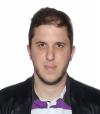What Causes Dizziness When I Stand Up Accompanied By Pounding Heart Beats?

 Tue, 4 Oct 2016
Answered on
Tue, 4 Oct 2016
Answered on
 Tue, 25 Oct 2016
Last reviewed on
Tue, 25 Oct 2016
Last reviewed on
Yesterday I experienced yet again something I find hard to cope with. Normally I get dizzy upon standing up from sitting down for periods of time. It takes about two seconds after I get up from sitting or lying down, and I get very dizzy. Sometimes accompanied by hard heartbeats, not always fast.
Yesterday I was working, and I had to kneel down and get up four-five times, and then run a couple yards. We were makng a film so I had to do it several times. First time just a little dizzy, second time a bit more and it got worse for every time I did it. Last time it felt like was about to faint. No strenght in legs it felt like when I was to run the couple yards. And it is the same feeling that I get when I rise from sofa at home, just ALOT more intense. This is not the first time this happens. Every time i do work where I have to lay down and get up repeatedly, the same result.
I also get extremely dizzy by for example just spinning around once or twice.
Is this a sign of heartcondition? It feels like the heart is not able to get enough blood out. As you know I have had problems with heartrelated symptoms a long time. But only foud in bad shape, ectopic heartbeats and a right partially block.
This is the same symptoms my daughter during for example her gym classic at school etc.
Following advice
Detailed Answer:
Hi and thank you for asking!
I read your query and understood your concerns.
Your symptoms may be related to Postural orthostatic tachycardia syndrome (POTS). POTS are conditions in which changing position from supine to an upright position causes an increase in HR by more than 40 bpm.
POTS is not a syndrome related to cardiac condition but to autonomic nervous system dysfunction.
One of the major signs of POTS is dizzines with normal BP ( in severe cases patient may experience presyncope).
If you were my patient I would recommend to do the following examinations to confirm the diagnosis of POTS:
- Active stand tests (patients stand up after laying down for a while and during all the time HR, ecg and BP is monitored)
- Tilt table test
- Cardiac echo
- Holter monitoring
Hope this will be of help!
Wish you health!
Dr. Shehu
p.s: Ifyou have more questions, pleasedon't hesitate to ask me again.
Answered by

Get personalised answers from verified doctor in minutes across 80+ specialties



